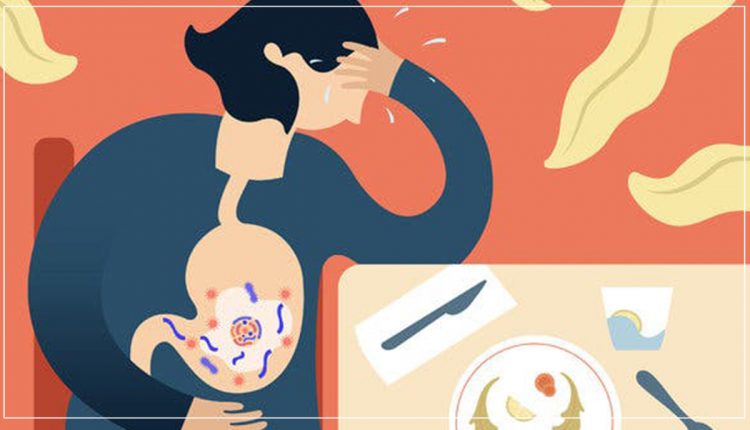
What You Should Know About Food Poisoning
Food poisoning is a rather common problem, not just in Pakistan but all over the world. While most cases of food poisoning can be cured at home, there are others that may require urgent medical attention.
The mildness or severity of the illness depends largely on the individual’s immunity and the type of bacteria that causes the food poisoning.
How Is Food Poisoning Caused?
Food poisoning is caused by consuming food that has been contaminated with bacteria. There are about 250 bacteria that can infect food. The two main areas affected by food poisoning are the stomach and intestine.
Age, type of bacteria and overall health determine how long it takes for the symptoms to appear and what their severity is.
Common symptoms include the following:
- Diarrhea
- Nausea
- Vomiting
- Abdominal cramps
How Can Food Poisoning Be Cured
For mild cases of food poisoning, the following home remedies can be used to treat the condition:
- Your digestive system needs time to recover. Avoid solid foods and stick to consuming light food that is not strongly flavored. Some good options include Yakhni, boiled vegetables, and soft fruits (bananas are an excellent option).
- Food poisoning often leaves the patient feeling weak, exhausted and dehydrated. Make sure that there is an ample supply of ORS or Pedialyte available. Keep sipping on water or mildly flavored juices to stay hydrated.
- Liquids such as tea and coffee contain caffeine which can prolong diarrhea. Avoid drinking all caffeine containing drinks until you have fully recovered.
- Drink mild herbal tea to soothe your stomach.
- Avoid dairy foods (except plain yoghurt), spicy and fatty foods, and high fiber foods (they force your digestive system to work hard).
How Can You Prevent Food Poisoning?
Infected food does not always taste bad and smell foul. It is possible that there may not be any odor or foul taste and yet the food may be infected with bacteria. Food can be infected during processing, handling, growing and even through contact with the environment.
What this essentially means is that if food is handled by an infected individual, if food is grown with the help of contaminated water, and if food is left exposed to dirt and dust, the chances of it becoming a contaminated are very high. At all of these touch points, bacteria can worm its way into the food item and silently breed on its surface.
Take the following precautions to cut down on the risk of suffering from food poisoning:
- Most of the shops in Pakistan that sell fresh raw food (such as fruits, vegetables, meat, and chicken) have minimal hygiene and poor cleanliness. Shops are often open from all sides and infested with innumerable flies. The raw products you buy are constantly exposed to all forms of bacteria. Try to find a shop that has a higher standard of hygiene and cleanliness but if that is not possible, make sure that you wash the food thoroughly at home.
- Do not handle food if you are suffering from diarrhea or mild food poisoning.
- Wash your hands thoroughly before you handle food.
- Food packaging often contains labels that offer directions for how the food should be stored and at what temperature. Follow these labels closely.
- Do not eat cooked food that has been in the fridge for several days. Reheating the food will not help to make it safe to eat. If it tastes or looks a little suspicious, discard it.
- Always check the expiry date mentioned on canned food. Poorly preserved or expired canned food has a higher chance of being infected. Always purchase canned food from a trusted manufacturer.
Conclusion
As we discussed earlier, mild cases of food poisoning can be cured at home with the right diet, adequate rest, and care. Medication is usually not prescribed for mild cases. However, if the symptoms are consistently severe seek urgent medical care immediately. Severe food poisoning, if not treated with professional medical care, can be life-threatening. Take good care of your health and be mindful of the foods that you eat!

